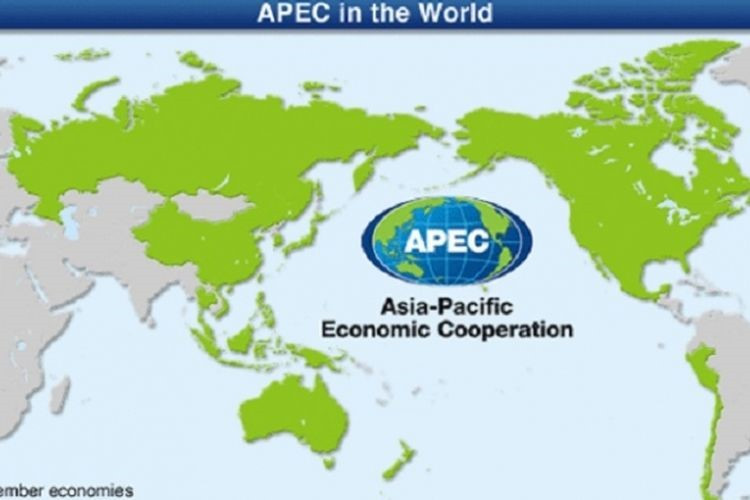Popular Reads
Top Results
Can't find what you're looking for?
View all search resultsPopular Reads
Top Results
Can't find what you're looking for?
View all search resultsRI to bring G20 loose ends to APEC
Bangkok summit to offer unique trade, energy, digital policy opportunities.
Change text size
Gift Premium Articles
to Anyone

The next eight days are going to be a busy time for Southeast Asia, with Cambodia hosting the ASEAN Summit and East Asia Summit, Indonesia the Group of 20 Summit and Thailand the Asia-Pacific Economic Cooperation (APEC) Summit, all back to back.
In a bid to continue conversations on international cooperation, Indonesia plans to beat the drum of its G20 agenda at the subsequent APEC Summit, which experts say could offer valuable opportunities to influence trade, energy and digital transformation policies, even as new initiatives seek to shift the world’s focus toward the Indo-Pacific region.
Indonesia has said its top priorities for the G20 are developing more inclusive global health systems and advancing both the world’s digital transformation and the transition to sustainable energy.
Similarly, APEC chair Thailand has adopted the theme “Open, Connect, Balance” this year. Much of the focus has been placed on integrating environmental sustainability with future economic goals, as well as reinvigorating the travel, tourism and services sectors, two years after COVID-19 first swept through the world.
“This is Thailand’s year, so the three issues of the theme will be the ones to focus on. [...] Indonesia shares the same aspirations as Thailand, although we will still want to push our agenda from the G20,” said Witjaksono Adji, the Foreign Ministry’s director for Asia-Pacific cooperation, in an interview with The Jakarta Post earlier this month.
Jakarta will also support negotiations on resuming cross-border travel and cooperation between creative industries across the Asia-Pacific region, Witjaksono said.
President Joko “Jokowi” Widodo is scheduled to attend the APEC Summit on Nov. 17, after concluding the G20 Summit in Bali.
Unique opportunities
While the Bali summit will allow Jakarta to advance its interests through the G20 finance track, the Bangkok forum will open more doors in the trade track, said Yose Rizal Damuri, economist and executive director of Jakarta’s Centre for Strategic and International Studies (CSIS).
In some respects, APEC might even offer more opportunity than the G20, he told the Post.
“Indonesia wants to advance its energy transition agenda, but there are loads of trade problems for energy. [...] APEC has a lot of influence when it comes to these issues,” said Yose. “The dialogues happening at APEC concerning the digital transition are extremely advanced. In fact, they are more advanced than the G20 dialogues.”
Over the last decade or so, in the face of increased Chinese assertiveness, some nations have sought to deemphasize the Asia-Pacific region in favor of the Indo-Pacific, a shifted conception that notably dilutes China’s prominence and brings in India. The United States, a chief proponent of the reframing, has offered its Indo-Pacific Economic Framework (IPEF) as an alternative to the massive, China-backed Regional Comprehensive Economic Partnership (RCEP) free trade agreement.
But Yose suggested that APEC still carried weight in the region.
“The Asia-Pacific, after all, is still the primary economic power of the world. The Indo-Pacific cooperation’s focus is on different items – mostly security matters. It is APEC that talks trade, not the Indo-Pacific,” he said.
Always a catch
Similar to how Indonesia’s G20 presidency has been challenged by the ongoing war in Ukraine, stalled negotiations over the China-US trade war have troubled Thailand’s efforts to advance its APEC agenda over the past year, Witjaksono said.
“The Asia-Pacific region is an area of contention between the two superpowers. [...] Truth be told, the competition between the two countries during negotiations can be hugely felt,” he said. “This is indeed one of the obstacles blocking the way to creating a strategic environment conducive to success.”
Yose said the US and China had begun using trade as a weapon and claimed that world economic stability was at risk of being thrown under the bus.
“I refer to this as the securitization of trade policies. [...] These countries that are competing cannot attack each other by sending missiles, so they turn to weaponizing their trade policies. It is highly troublesome,” Yose said.
“Platforms like APEC would be the correct space to discuss these matters,” he added.










